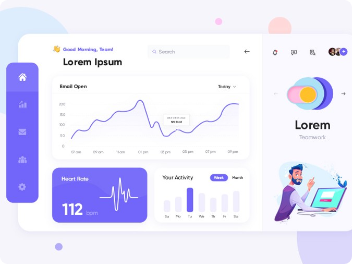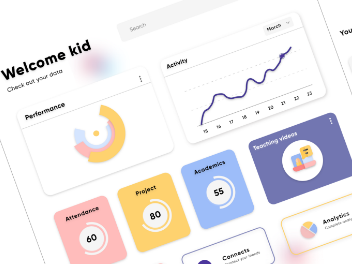
Enterprise Applications
Enterprise Applications are software solutions that provide business logic and tools to model entire business process for organizations to improve productivity and efficiency.
Examples of enterprise application include order management systems, customer relationship management, production dashboard or supplier-seller management systems.
“With Websigma Global managing your entire platform, you can accelerate your strategy to dominate your marketplace.”
Architecture
Enterprise software architecture is closely coordinated with an enterprise's internal organization, business model and processes. To enhance speed and functionality, enterprise software architecture should present the following characteristics: Simplicity, Overall Flexibility and Maintainability, Reusability and Decoupling of Technology and Functionality.
Lifecycle Management
It is crucial for organizations to master the stages of enterprise application software. Life Cycle of Enterprise applications is usually categorized into seven buckets - Design A Blueprint, Evaluate Project Requirements, Software Design, Software Development, Software Testing, Deployment of the Software and Maintenance and Upkeep.
Software Development
Software development is the process where developers start coding according to the documented requirements of the project. The project management team monitors the programming phase. This is important phase of enterprise applications, hence careful monitoring of process is required.
Enterprise Mobile Applications
Each time a field worker resolves a problem using a tablet, or a customer pays a bill with a smart phone, it’s the result of an enterprise’s investment in digital integration and mobile app development. Industries such as utilities, telecommunications, oil and gas, and manufacturing are using mobile platforms to enable field workers to maintain and upgrade their infrastructure.
Deployment and Support
Websigma provides complete assistance in deployment and support. We run multiple tests before deployment : Code Quality Test, Unit Testing, Integration Testing, Performance Testing and Security Testing. If the testing phase is successful, software is ready for deployment. The deployment phase involves obtaining manual approval to deploy the software. We also use automatic tools to deploy the software, such as Application Release Automation (ARA).




